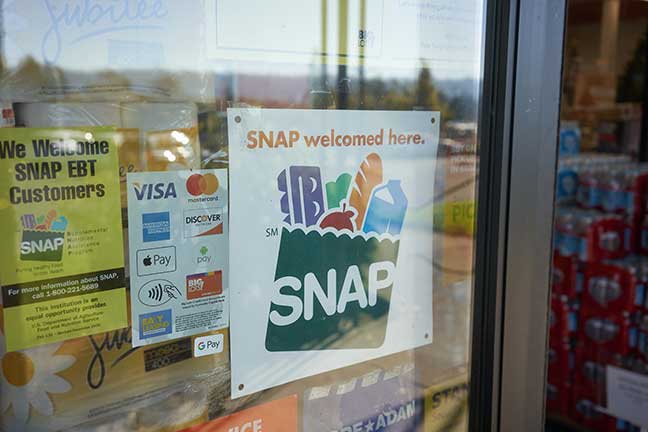Over 25 million Americans aged 40 and older are affected by vision impairment and legal blindness according to the CDC. As our senior population grows, age-related eye diseases are becoming increasingly common.
If you’re considered legally blind, Medicare provides important medical benefits to help preserve your remaining vision and overall health. However, some gaps exist related to coverage of routine vision care and low vision assistive devices.
This article will explain:
- What constitutes legal blindness
- How you can qualify for Medicare if legally blind before age 65
- What parts of Medicare help pay for vision-related medical care
- What services are not covered
- Additional resources available for the legally blind
- Eligibility for free cell phone service through Lifeline and ACP
- Tips for maximizing your Medicare benefits
Understanding Legal Blindness
The Social Security Administration (SSA) defines legal blindness as:
“Vision that cannot be corrected to better than 20/200 in your better eye, or if your visual field is 20 degrees or less in your better eye.”
So if your best eye with corrective lenses still measures 20/200 vision or worse, or you have 20 degrees or less of visual field, you’re considered legally blind.
Common age-related eye diseases that can cause legal blindness include:
- Macular degeneration
- Glaucoma
- Diabetic retinopathy
- Cataracts
Vision loss is often gradual, so make sure to monitor your eyesight and see an ophthalmologist regularly as you age.

Qualifying for Medicare Before Age 65 – Through Social Security Disability Benefits
One way to get Medicare coverage if legally blind is by qualifying for Social Security Disability Insurance (SSDI) benefits from the Social Security Administration (SSA).
If your visual disability prevents you from being able to work and earn an income, you may be eligible for monthly Social Security disability income (SSDI payments). After receiving SSDI for 24 months, you’ll automatically be enrolled in Medicare even if you aren’t age 65 yet.
This includes both Part A hospital coverage and Part B medical coverage. You’ll receive your Medicare card in the mail before your 25-month SSDI anniversary.
Original Medicare Coverage for the Legally Blind
Original Medicare is the traditional health insurance program directly administered by the Federal government. It consists of Part A, which covers inpatient and hospital care, and Part B, which covers doctor visits and outpatient services.
Once enrolled, what do Medicare beneficiaries receive related to vision impairments?
Medicare Part A – Inpatient Hospital
Part A helps pay for inpatient hospital care if you need eye surgery or emergency treatment. You’ll be responsible for deductibles and coinsurance.
Medicare Part B – Outpatient Doctor Coverage
As a part of the outpatient medical services covered, this includes:
- Exams to diagnose and monitor eye conditions
- Outpatient surgery and procedures
- 80% of costs for eye doctor visits and tests
- Eyeglasses after cataract surgery
- Yearly glaucoma screening
Medicare Part D Prescription drug coverage
Part D prescription drug plans can provide coverage for prescribed eye medications and drops. But this depends on the plan’s approved drug formulary.
What’s Not Covered by Original Medicare?
Unfortunately, Medicare does not cover routine vision services and products including:
- Routine eye exams for glasses/contacts
- Corrective lenses
- Contact lenses
- Low vision devices like magnifiers
It also won’t cover vision rehabilitation training or vocational services for the blind.
Advocacy efforts are ongoing to expand Medicare coverage of low vision durable medical equipment assistive devices in particular. But for now, these items must be paid for out-of-pocket unless you have supplemental insurance.
Consider a Medicare Advantage Plan
Beyond Original Medicare, you may want to look into Medicare Advantage (Part C) plans. These are offered by private insurers and must cover the same services as Parts A and B.
However, many Medicare Advantage plans also provide extra benefits that Original Medicare doesn’t cover, like some routine vision care.
When comparing plans, check to see if any in your area offer additional vision coverage such as:
- Annual eye exams and glasses
- Contact lenses
- Cataract surgery
- Low vision aids
If you have limited income and assets, you may qualify for a Dual Eligible Special Needs Plan (D-SNP) which may offer even more benefits.
To understand your specific Medicare Advantage options, talk to a licensed insurance agent. They can explain supplemental vision benefits available in your location.
Additional Resources for the Legally Blind
Beyond Medicare, resources that can help the legally blind include:
- State vocational rehabilitation programs providing job training and workplace accommodations
- Nonprofits like the National Federation of the Blind
- Free audiobooks and library services from the National Library Service for the Blind
- BlindShell USA – a cell phone company specifically for the sight loss community
- Additional government assistance programs – Medicaid Services, SSI, SNAP
Eligibility for Lifeline and Affordable Connectivity Program
If you receive SSDI for a visual disability, your income level may also qualify for FREE cell phone service from EASY Wireless through the Federal Lifeline and the Affordable Connectivity Program.
Who is EASY Wireless?
EASY Wireless is a national wireless provider serving the Lifeline and Affordable Connectivity Program community in 47 states. We use the same nationwide network of cell phone towers to offer the same high-speed data as the National carriers without National carrier prices.
When you qualify for Lifeline and ACP through your income level or various government assistance programs USA you’ll receive
EASY Wireless Unlimited Plan
- FREE Unlimited Talk
- FREE Unlimited Text
- FREE Unlimited Data
- FREE Sim Card Kit
- Choose to Keep Your Number or Get a New One
- FREE Delivery Right to Your Door
Apply Online in Only a Few Minutes
Just enter your Email and Zip Code in the Box Below and click “Enroll Now” to get started through our online enrollment system which has been specially updated to serve the sight loss community.
Start Saving Today!
Enroll Now
FAQ
Are Social Security retirement benefits the same as Social Security disability benefits?
Social Security retirement benefits and disability benefits are different programs with distinct eligibility requirements, benefit amounts, tax treatment, and work rules. The two types of benefits are not interchangeable.
Make the Most of Your Medicare Benefits
Medicare provides essential medical benefits to help preserve and protect your vision health if you’re considered legally blind.
While gaps exist in routine vision care coverage, you can still maximize your benefits by:
- Taking advantage of covered exams, treatment and surgery for eye diseases
- Exploring supplemental insurance benefits that aid with vision costs
- Utilizing resources like vocational rehab programs and service animal nonprofits
- Signing up for discounted cell phone service through Lifeline and ACP
- Requesting Medicare info in accessible formats if you need it
- Staying up to date on advocacy efforts to expand Medicare vision coverage
Even with current limitations, knowledgeable legally blind seniors can get the most out of their Medicare benefits. Focus on the services available to maintain your overall health and well-being.


